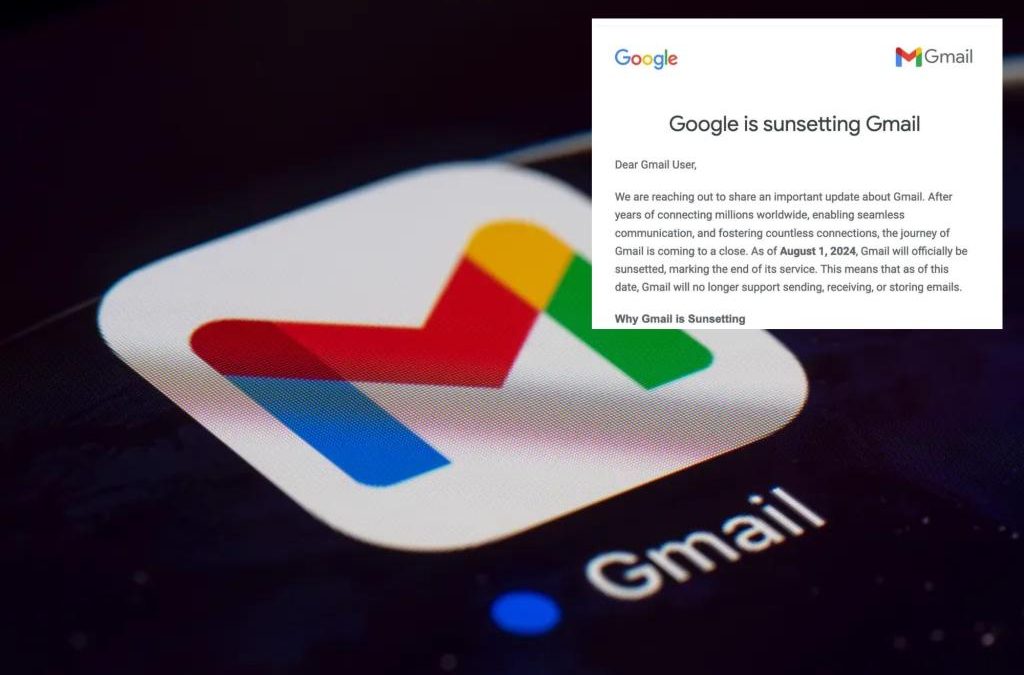A hoax statement purportedly issued by Google on Thursday claimed that the search giant was shutting down its ubiquitous Gmail service — sending the internet into a panic.
“Google is sunsetting Gmail,” read the fake news release, which was supposedly addressed to the 1.8 billion users of the service worldwide and posted to X.
“After years of connecting millions worldwide, enabling seamless communication, and fostering countless connections, the journey of Gmail is coming to a close,” read the faux statement.
The statement, featuring the company’s logo, was sent out hours after Google announced it was pausing the release of its text-to-image AI tool Gemini following outcry over the software rendering factually and historically inaccurate images.
The notice even gives a date — Aug. 1, 2024 — as the date until which Gmail users will “be able to access and download all your emails.”
“After this date, Gmail accounts will become inaccessible.”
The hoax quickly went viral on X, though users were quick to point out that this was not real.
However, the missive may have been created by “notorious sh-tposter,” Chris Bakke.
The self-described tech entrepreneur wrote on X, “I’m the SVP of Product at Google ($28.8M TC). Last night, Sundar asked me to ‘fire the entire Gemini team.’ I misread his message (insanely bad service at my 7br 11bath cabin in Park City) and I accidentally fired the entire Gmail team. Gmail…Gemini. Look at that quickly without your glasses when you’re 7 margaritas deep at the fire pit on a Wednesday and you’d make the same error. I mean you get how that’s confusing right? Anyway, I’m rolling with the decision. Gmail’s gone.”
Bakke once used a photoshopped news article about McDonald’s Hamburglar to make fun of the New York Times‘ profile of convicted Theranos founder Elizabeth Holmes,” Business Insider reported.
Gmail is the most popular email platform in the world. Its user base of 1.8 billion people represents one fifth of the world’s population.
But critics of Google have long claimed that the company violates user privacy by scanning their messages so it could target them with advertisements tailored to their specifications.
Google stopped scanning emails to tailor ads in 2017. In 2020, the company stopped showing shopping ads on Gmail.
The Post has sought comment from Google.
Source




